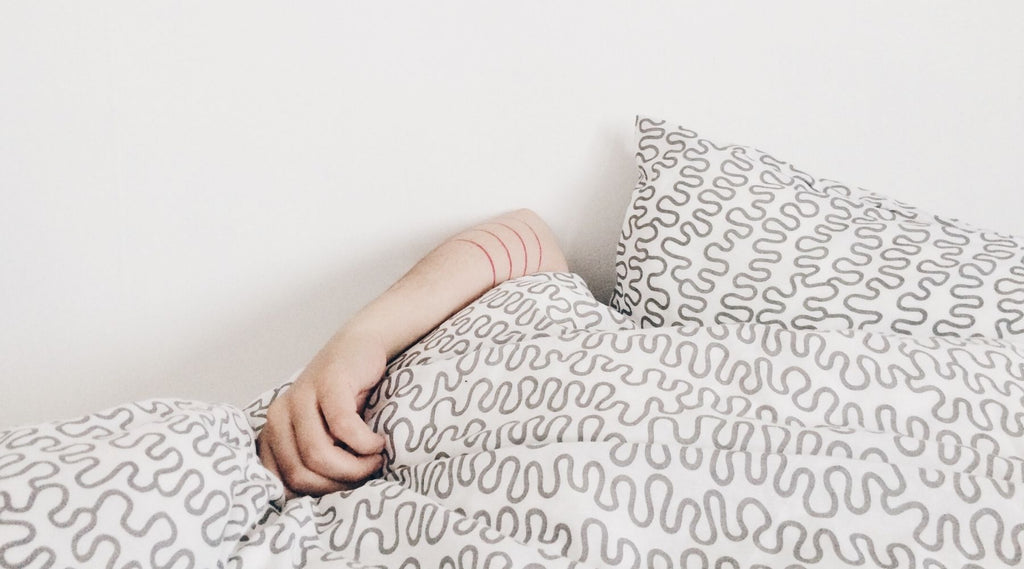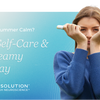Adults Are Not Getting Enough Sleep

Few things can ruin a person’s day as much as not getting a good night’s sleep, as most adults know. According to a study by the Centers for Disease Control and Prevention, one-third of U.S. adults regularly do not get enough sleep.
The recommended amount of sleep for adults ages 18-65 years is at least 7 hours per night, according to the National Sleep Foundation. However, studies show that about one-fourth of adults sleep six hours or less per night.
A bad night’s sleep can have more severe consequences than just feeling grumpy and groggy. A long-term lack of sleep puts people at greater risk for conditions like anxiety, depression, diabetes, heart disease, obesity, and even premature death.
The quality of our sleep also matters. Although sleep seems like a passive activity, a lot happens while we snooze. The different stages of sleep help us repair our bodies, boost our immunity, process information, and rebuild our energy.
When people experience disrupted sleep, it is known as insomnia. This condition can be acute, meaning sleep problems last a few nights or weeks, or chronic, in which people experience trouble sleeping at least three nights per week for three months or more. A number of factors contribute to insomnia, and the condition comes with negative side effects. However, the good news is that there are a number of options for insomnia treatment.
Insomnia can take a few different forms. It can mean having trouble falling asleep, known as onset; trouble staying asleep, known as maintenance, or having poor quality sleep, in which you never reach a stage of deep sleep.
Causes of insomnia typically fall into different categories, including:
Mental/psychological
- Stress
- Anxiety
- Depression
Behavioral
- Drinking too much caffeine or alcohol
- Spending too much time in front of screens too close to bedtime
- Irregular bedtime schedule
Environmental
- Too much light and/or noise
- An uncomfortable bed
- A room that is too cold or too warm
Physical
- Medical conditions like chronic pain, diabetes, heart disease, and asthma
- Medications (prescription and over-the-counter)
- Sleep disorders, like sleep apnea and restless leg syndrome
Even when you want to get a full night’s sleep, outside influences like work, family, and social obligations may put pressure on you to cut back on your slumber. Technology also presents a constant temptation to put off going to bed, while impacting the quality of our sleep.
A lack of sleep has both short-term and long-term effects on people’s mental, emotional, and physical health. After a night or two of poor sleep, people tend to feel groggy and irritable and may have trouble staying awake and concentrating. These effects compound and worsen over time.
Individuals who regularly do not get enough sleep are at a greater risk for depression, anxiety, and dementia. Long-term sleep deprivation also greatly affects your physical health, by compromising your immune system, contributing to unhealthy eating habits and increasing your risk for obesity and diabetes, lowering your sex drive and fertility, and increasing your risk for high blood pressure, heart inflammation, and heart disease.
Insomnia affects other people besides the individual who isn’t sleeping. Drowsiness can cause car crashes, workplace accidents, and major disasters.
Luckily, if you are suffering from chronic insomnia, there are many recommendations for how to fall asleep, how to stay asleep, and how to get more deep sleep.
How to fall asleep
- Avoid consuming caffeinated drinks and foods at least four hours before bedtime
- Limit food and alcohol consumption right before bed
- Avoid naps, or only take a brief nap early in the day.
- Don’t do physically strenuous exercise right before bed
- Reset your circadian rhythms. Set a regular time to go to bed and wake up, and stick to it
- Keep artificial light, including from TV, computer, e-reader, and phone screens, to a minimum starting about an hour before bedtime. This cues your brain to produce melatonin, which is a hormone that regulates sleep-awake cycles.
How to stay asleep
- Adjust the room temperature before falling asleep, so you don’t wake up too hot or too cold in the middle of the night
- Go to the bathroom right before going to bed
- Keep a glass of water nearby in case you wake up thirsty
- If stress wakes you up, try meditation or soothing sounds to help calm your mind
- Avoid looking at the clock
- If you can’t fall asleep within 15-20 minutes, get out of bed, and do a relaxing activity like reading until you feel sleepy again
How to get more deep sleep
- Understand the stages of sleep, and give yourself enough time to go through all of them
- Let your brain relax before going to bed, by taking a hot shower, using aromatherapy, reading, meditating, or another relaxing activity
- Make sure you have a comfortable bed, pillows, and blankets
- Keep sound and light out of your room. Turn off lamps, and avoid screens in your bedroom. Use blackout curtains or an eye mask to block any natural light, and use earplugs to block noise.
Natural remedies for insomnia
There are also a number of natural sleep aids that can help you fall asleep and stay asleep, including:
- Drinks like warm milk and chamomile tea
- Herbs like Valerian root and lavender
- Supplements like melatonin, magnesium, and gingko biloba
- TouchPoints bi-lateral stimulation devices
If you’ve tried these suggestions and remedies, and still experience sleep disturbances, then you may need to be tested for an underlying sleep disorder. Consult with a board-certified sleep medicine physician to determine if a sleep and stress panel is necessary, and what it entails. Sleep disorders may be related to underlying physical conditions like respiratory issues, movement, or disruptions in circadian rhythm. Depending on the type of sleep disorder, it may be treated with medication or supplements, lifestyle changes, or special equipment like a continuous positive airway pressure (CPAC) machine.
*This blog post was written by Patricia Smith.




